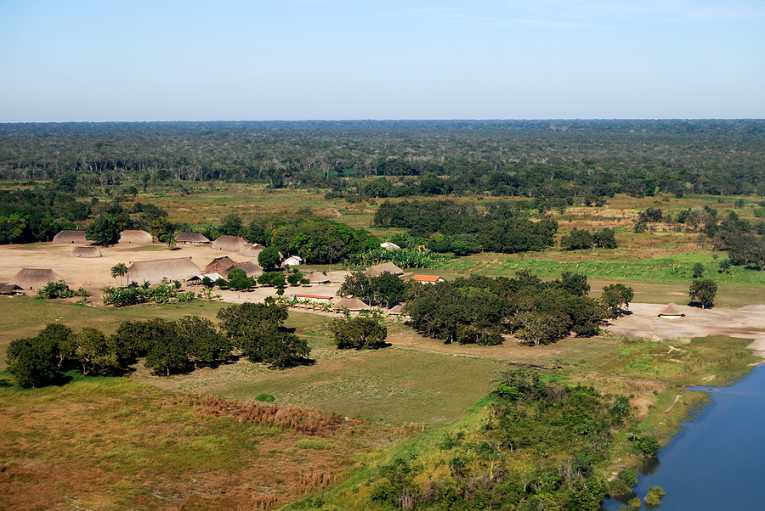Turning a forest into a "protected area" can do more harm than good, according to the Center for International Forestry Research (CIFOR).
Why? Because when local communities traditionally rely on forests for at least part of their livelihood or survival, they're not just going to stay out. And asking them to stay out isn't fair. In fact, it violates their basic human rights.
By working with locals instead of against them, policymakers and NGOs can better protect the forests. Locals must play a key role in decision making, CIFOR researchers assert.
Communities living in or around forests derive at least one-fifth of their total household income from forest products, says a previous CIFOR study. Thus, a sustainable management approach works much better than a hands-off approach, from both a human rights and an environmental standpoint.
CIFOR's study on protecting forests vs. using sustainable management practices, published in the journal "Forest Ecology and Management," links 16 case studies of tropical forest management. The results show that local forest management works much better than fencing forests off. In protected areas in Latin America, Asia, and Africa, protected areas lost 1.47 of their forest cover per year, while community-managed forests lost .24 percent, say researchers.
REDD+, a high-profile program that gives developing countries money in exchange for protecting their forests, must follow this advice in order to succeed, researchers believe. Activists have strongly critiqued REDD+ for not giving locals enough of a say, or even much information in some cases. They fear that as a global mechanism, REDD+ will merely impose rules on locals, missing out on locals' expertise in managing their particular forests. Involving local women also poses a major concern, particularly as women traditionally play an important role in managing forests.
Currently, community forest management accounts for roughly 8 percent of the world's managed forests, says CIFOR. In Latin America, the figure rises to 20 percent.
Land rights issues threaten some communities' ability to continue managing their own forests. In Borneo, for instance, communities frequently have no documented land rights. As REDD+ plans proceed, recognizing communities' land rights will play a crucial role in protecting human rights and the environment.
Top Imange Credit: Aerial Of Amazon Indian Village in Mato Grosso, home to the Kamayura tribe. © 1photo










